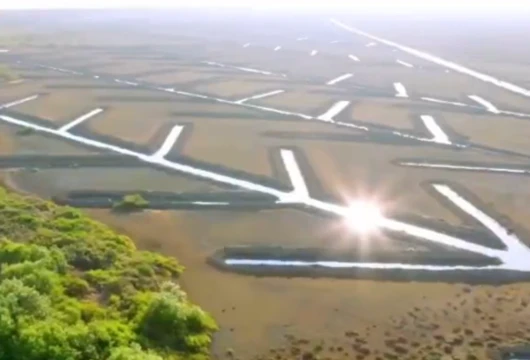Tamil Nadu Launches Carbon Credit Pilot in Muthupet Mangroves
In a major environmental milestone, the Tamil Nadu Green Climate Company (TNGCC) has chosen the Muthupet mangrove ecosystem in Thiruvarur district as the first pilot site under the state’s Carbon Credit Trading Scheme (CCTS). This initiative positions Tamil Nadu as a pioneer in leveraging nature-based carbon credit mechanisms within India’s emerging voluntary carbon markets.
State Taps Blue Carbon Sites for Nature-Based Climate Finance
With its rich mangrove forests and estuarine wetlands, Muthupet represents one of Tamil Nadu’s most ecologically significant blue carbon zones—vital for carbon sequestration and coastal resiliency. The pilot aims to generate high-integrity carbon credits by investing in afforestation, reforestation, mangrove restoration, and wetland conservation under the state’s Green Tamil Nadu Mission.
Per Carbon Pulse’s Nature & Biodiversity newsletter, the Tamil Nadu government will appoint an expert firm to ensure project integrity, maximise revenue, and build a replicable platform for future carbon initiatives.
Why Carbon Credit Matters for Tamil Nadu
Carbon credits are tradable certificates representing one ton of CO₂ equivalent sequestered or avoided. By entering the voluntary carbon market with nature-based projects, Tamil Nadu seeks to:
- Unlock new streams of sustainable finance
- Support both climate adaptation and socio-economic development
- Incentivize large-scale mangrove restoration and wetland conservation across the coast
Muthupet’s mangroves alone sequester approximately 3,754 tonnes of carbon per hectare, supporting over 1,500 species and acting as a natural shield against storm surges, reducing wave height by nearly 99% .
Mangrove Restoration: Ecological and Financial Impact
Tamil Nadu’s Forest Department has already restored 1,207 hectares and newly planted 2,436 hectares of mangroves, alongside plans to plant over 600,000 saplings in Chennai alone. These efforts significantly boost carbon storage and community resilience while establishing a strong foundation for carbon credit finance .
The state’s forests store around 216 million tonnes of carbon, equivalent to 797.7 million tonnes of CO₂, comprising nearly 3% of India’s total forest carbon stock .
Building a Scalable Carbon Credit Platform
TNGCC’s pilot is designed with credibility and scale in mind:
- Adherence to high-integrity carbon methodologies ensures verifiable emission reductions
- Expert-led operations will help standardise carbon credit generation for future nature-based projects
- A transparent, replicable model that could expand to other coastal and mangrove sites across the state and beyond.
This strategy aligns with global standards such as Verra and Gold Standard, ensuring international market access and environmental integrity.
Mangroves: Nature’s Climate Protectors
Mangroves are vital coastal ecosystems that offer multiple climate and ecological benefits:
- Sequester carbon at rates up to four times that of rainforests, especially in soil layers
- Provide natural coastal protection against storms, erosion, and sea level rise
- Support biodiversity, including fish nurseries, migratory birds, and endemic species
The Muthupet region, part of the Point Calimere Ramsar site, is internationally recognised for its wetland biodiversity and conservation importance .
Replication and Regional Leadership
Muthupet’s pilot could spark broader ecosystem restoration across Tamil Nadu and other coastal states. With proper institutional backing, accurate monitoring, and community involvement, such nature-based carbon projects have the potential to:
- Generate sustainable revenue from carbon credits
- Strengthen climate resilience among coastal communities
- Support India’s broader net-zero aspirations by integrating blue carbon into climate action plans
By unlocking Blue Carbon Agency frameworks, such projects position TNGCC—and Tamil Nadu—at the forefront of sustainable finance and coastal restoration in India.
A Blueprint for Climate Finance
The launch of Tamil Nadu’s first Carbon Credit project in Muthupet mangroves marks a crucial next phase in nature-based climate action. Through the integration of environmental restoration and carbon financing, the state is crafting a forward-thinking model—one that combines ecological integrity, local livelihoods, and carbon markets.
As this initiative unfolds, it sets an important example: when ecosystems are valued for their climate services, communities and biodiversity thrive hand-in-hand. Muthupet may just be the beginning of a blue carbon revolution in India.
For more in-depth analysis and inspiring climate news, click here.

